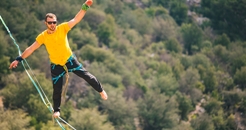 Practical wisdom helps us cope with uncertainty
Practical wisdom helps us cope with uncertainty
From an article by Behavioural Scientist
We are now, due to the pandemic, longing for certainty and an end to the maze of unanswerable questions. With greater risk and uncertainty, we naturally experience greater stress. Practical wisdom means knowing how to balance conflicting aims and principles. This kind of wisdom acknowledges that uncertain risk cannot be eliminated, but guides us in becoming wiser about how we manage it.
We can begin with our knowledge about what the risks are, and self-knowledge about what risks we are willing to take and what benefits we’d like to prioritize. And we can use practical wisdom to steer through the uncertainty, just as we might navigate a busy city full of aggressive drivers and no crossings. Here are four ways to guide us through the uncertain terrain:
1. Start with the data (what we do know and what we can control)
Uncertainty feels so terrifying that it tends to consume all of our attention. To combat the stress of uncertainty, direct attention to areas of relative certainty. In this way, we know that wearing masks, washing hands, disinfecting surfaces, and maintaining social distance can reduce viral spread.
2. Avoid black and white thinking
A wise person recognizes that almost all situations and choices are accompanied by infinite shades of grey, and that we cannot eliminate risk, no matter what we do. In fact, even a decision to never leave our homes, could leave us trapped at home for longer than would be healthy. Similarly, waiting for a vaccine is accompanied by all sorts of risk—reduced physical activity because of staying home, social isolation that can lead to depression and anxiety, and boredom that can breed intellectual stagnation. Wisdom demands balancing conflicting priorities—from physical health to psychological health, and from care for our children to care for our teachers and school staff. Priorities will conflict much of the time. Optimizing benefit and reducing risk still means there will be some risk. We are better off when we choose risk wisely.
3. Start with the rules, and then consider wise modifications
If rules are like GPS instructions to get to a friend’s house, then COVID-19 is like the three-car pileup. You could stick around and wait for your GPS reroute, but you might trap yourself by doing so. Instead, you could explore a different route. The better you know the local area, the more tempting deviating from the GPS rules will be. More detailed knowledge means better judgment and less reliance on rules. There is uncertainty either way, of course, but there is much to be said for using the GPS as a rough guide, to be modified by your familiarity with the roads and your self-knowledge about what kinds of risk it is wise for you and those you love to tolerate.
4. Learn to accept uncertainty—it is a key ingredient for fostering wisdom
Practical wisdom requires an appreciation that there is no perfect choice, and that each choice has benefits, drawbacks, and uncertainties. An abundance of research reveals that tolerating uncertainty to engage in trial-and-error learning helps us develop cognitive networks that can guide us through new experiences. When we make decisions wisely, we can ease our distress by pausing to appreciate that we are doing the best we can in alarmingly uncertain circumstances.
Practical wisdom requires an appreciation that there is no perfect choice, and that each choice has benefits, drawbacks, and uncertainties.
In truth, the world we inhabit is an uncertain place. There are no guarantees, even when we generate safety measures to reduce risk or accept some uncertainties that are a part of living. In a pre-COVID world, we had learned to live so well with most of the uncertainty we face that we tended not to notice it. COVID-19 has introduced uncertainties that we haven’t yet learned to live with. And the stakes are high.
To live life in these uncertain times, we need the skills of a trailblazer who can improvise rather than follow a rigid set of directions. Of course, it takes time and experience to get the lay of the land, to be able to plot a course that can reliably get you to your destination safely and on time.
Read the full article here.
That is practical wisdom. We also have spiritual wisdom to guide us..
From an article by Behavioural Scientist, 30/09/2020